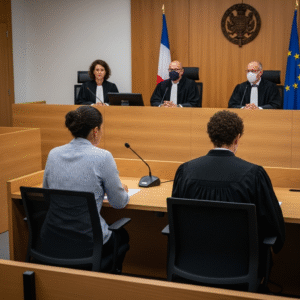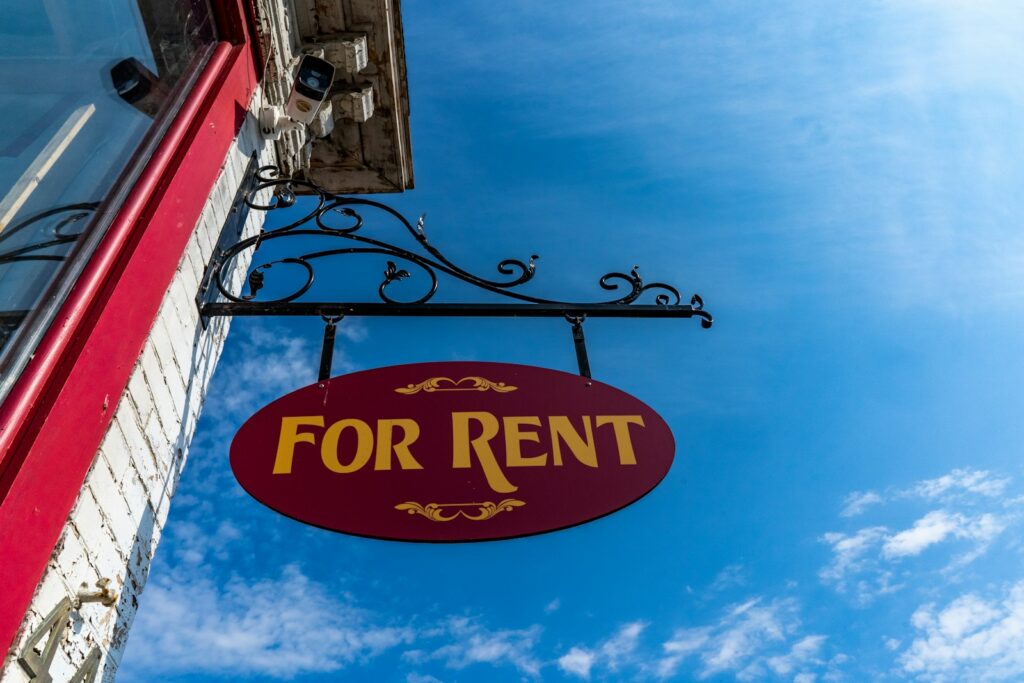The commercial law applicable in Saint-Pierre-et-Miquelon is a unique legal microcosm, where ordinary French law is far from uniformly applied. Far from being a simple transposition of metropolitan law, the archipelago's legislation is a complex set of exclusions and adaptations, shaped by its history, geography (the archipelago has never had the status of an island) and culture. Saint Pierre department in the metropolitan sense) and its specific economic features. For entrepreneurs and local economic players, navigating this legal environment requires a precise knowledge of the exceptions that govern it. This article details the special features of commercial law in Saint-Pierre-et-Miquelon, an area where our expertise in overseas commercial law, and the role of each lawyer of our team, makes perfect sense.
A unique legal framework: the commercial judicial system in Saint-Pierre-et-Miquelon
Unlike mainland France, the archipelago has no consular commercial courts. This structural absence has led to a organisation original judicial system for dealing with commercial disputes, a fundamental characteristic of the organisation of the commercial courts in the French overseas territorieswhich is based on courts with extensive jurisdiction.
The Court of First Instance: specific commercial jurisdiction
In Saint-Pierre-et-Miquelon, the court of first instance is responsible for commercial matters. This court, which merges the powers usually devolved to the judicial court in mainland France, also rules on commercial matters. In most cases, it sits as a single-judge court, in accordance with the provisions of the French Commercial Code.article L. 513-2 of the French Code of Judicial Organisation, in its version at strength. This concentration of skills, which has an impact on management from court registryThis is a direct consequence of the reduced number of judicial personnel in the country. If this organisation allows for a degree of agility, it requires judges to be remarkably versatile in order to deal with a wide variety of disputes and to make the most of their skills. face each situation.
The commercial appeal court: an original mix
The originality of the archipelago's judicial system is even more marked on appeal. The High Court of Appeal, which hears appeals against decisions of the Court of First Instance, has a mixed composition. Depending on the provisions of articles L. 513-6 and L. 512-2 of the Code de l'organisation judiciaire, the panel is chaired by a judge, often the President of the Court. president of the court or the first president by delegation, but it is supplemented by two assessors. The latter are not career magistrates. They are chosen for two years from a list drawn up by the Minister of Justice, Minister of JusticeThey must be French citizens, aged at least 23, and must offer guarantees of competence and impartiality. This second instance system is a pragmatic response to the low number of professional magistrates. It does, however, raise practical questions about protection and maintaining objective impartiality in a restricted community where the link is common.
Notable exclusions from French ordinary commercial law
The principle of legislative speciality that governs Saint-Pierre-et-Miquelon as an overseas collectivity of thearticle 74 of the Constitution means that entire areas of commercial law in mainland France are excluded. These derogations create a distinct legal environment that must be mastered. By way of comparison, it is worth exploring the specific features of commercial law in French Polynesia, by New Caledonia or to Wallis and Futunawhich also contain significant exceptions.
Inapplicability of leasing and mutual guarantee companies
Two important financing and guarantee tools for businesses in mainland France are inapplicable in Saint-Pierre-et-Miquelon. L'article L. 910-1 of the French Commercial Code, in its version expressly excludes theapplication from provisions relating to leasing for collective shops run by independent retailers (C. com.., art. L. 125-3). Similarly, the rules governing mutual guarantee companies (C. com.., article L. 126-1) does not apply in the archipelago. Local companies must therefore resort to alternative financing and guarantee mechanisms, which necessarily influences their financial structure.
The special regime for collaborating spouses
The status of the collaborating spouse has long been subject to a special regime. Initially, metropolitan legislation setting a maximum threshold of employees for the spouse of the manager of an SARL to opt for this status was inapplicable. This exclusion was brought into line with ordinary law following the PACTE Act of 22 May 2019 and its decree d'applicationwhich abolished this ceiling for the whole of France. From now on, the business owner's spouse can opt for the status of collaborating spouse, regardless of the number of employees, a welcome clarification for entrepreneurs in the archipelago.
Exemptions from the bodacc and specificities of the oil warrant
Companies in Saint-Pierre-et-Miquelon benefit from a significant exemption: they are not subject to the requirements to publish notices in the Bulletin officiel des annonces civiles et commerciales (BODACC), a French official gazette. official journal that ensures transparency public as set out in articles R. 123-209 to R. 123-219 of the French Commercial Code. This simplification has a direct impact on the transparency of local business life. In addition, although the oil warrant is applicable, there is one specificity: thearticle L. 524-20 of the French Commercial Code, which imposes the obligation to maintain strategic stocks, is set aside. Although this warrant is exempt from this constraint, it is useful to understand the general operation of stock warranties, as explained in the practical guide on general shop warrant.
Competition law and commercial development: appropriate rules
Competition law applicable in the archipelago also derogates from ordinary law. The provisions French law implementing European Union rules on anti-competitive practices are excluded. However, this does not mean a total absence of regulation. L'article L. 752-27 of the French Commercial Code applies, enabling the Autorité de la Concurrence, the French competition authority, to administrative This will enable the Commission to intervene in the event of a dominant position in retail or wholesale trade, taking into account local geographical and economic constraints. Despite these adaptations, the fundamental principles of competition law remain essential, in particular to identify abuse of a dominant position which can distort the market. In addition, almost all provisions on commercial development is inapplicable, with the exception of thearticle L. 750-1-1 relative the Fonds d'intervention pour les services, l'artisanat et le commerce (FISAC).
Collective proceedings: between adapting and maintaining impartiality
The treatment of companies in difficulty has some remarkable features. European insolvency procedures (a order This point was confirmed recently) are logically excluded, as Saint-Pierre-et-Miquelon does not belong to the European Union. More surprisingly, the archipelago is exempt from the strict rules governing the impartiality of judges. Due to the very small number of judicial staff, thearticle L. 910-1 of the French Commercial Code declares inapplicable thearticle L. 662-7 of the same code. As a result, a judge who has dealt with a company as part of a preventive procedure can be appointed as a bankruptcy judge or take part in the decision to open insolvency proceedings against it. This pragmatic adaptation, put in place to make face to a situation complex, raises questions about the guarantees of a fair trial, and legislative changes are expected before the end of the year. December 2024 to strengthen guarantees. To better understand these specificities, a solid basis on the general course of the procedures, in particular the observation period in collective proceedingsis necessary.
Specific adaptations of French law: tax, employment law and commercial leases
In addition to pure and simple exclusions, many provisions of French law are applied in Saint-Pierre-et-Miquelon with adaptations to take account of the local context. Likewise, the legal system in Mayotte offers another example of significant adaptations in commercial law.
Accounting and taxation: a lighter regime and special agreements
The local authority's specific tax rules have a direct impact on commercial law. Individual traders can benefit from a reduction in their accounting obligations if they are covered by a simplified tax regime defined by the regulations in force. strength in the community (C. com., art. L. 911-2). Adaptations have also been made to technical rules: for example, valet parking privileges do not include taxes and customs duties. Similarly, the rules on resale at a loss and payment periods for alcoholic beverages have been adjusted to take account of locally applicable turnover taxes and consumption duties.
Employment law: taking account of specific local features
Local social law also influences commercial law. Membership of the social security fund of Saint-Pierre-et-Miquelon, a local public institution local, rather than metropolitan, bodies is a requirement in a number of situations. For example, in order for an artist to benefit from the status of commercial leases, he or she must be affiliated to this local fund. In addition, in the event of a pledge of equipment, the lien of the pledgee takes precedence over that of the caisse de prévoyance de la local authorityThis changes the usual hierarchy of creditors.
The adapted commercial lease regime
The status of commercial leases is one of the areas most affected by the adaptations. The definition of restoration work justifying a refusal to renew a lease is specific to the archipelago. For rent reviews on lease renewals, the rate of change is calculated by reference to a quarterly local index measuring the cost of construction, rather than on the basis of national indices. Lastly, the composition and operating rules of the conciliation commission for commercial leases are not set by law. decreebut by an order of the representative of the State in the local authority, after consulting the presiding judge of first instance, ensuring a better match with local realities. These provisions will enter into effective January 1st next.
The complexity of commercial law in Saint-Pierre-et-Miquelon, with its interweaving of metropolitan rules, exclusions and local adaptations, requires rigorous analysis and in-depth expertise. To secure your commercial transactions and effectively defend your interests in this unique legal context, our firm and every lawyer We'll be happy to provide you with tailor-made support.
Sources
- French Commercial Code, in particular Book IX relative at provisions on overseas France
- Code de l'organisation judiciaire, in particular articles L. 512-2, L. 513-2 and L. 513-6
- Act no. 2019-486 of 22 May 2019 on the growth and transformation of businesses (PACTE Act)
- Law 2016-1547 of 18 November 2016 on the modernisation of the justice system for the 21st century




